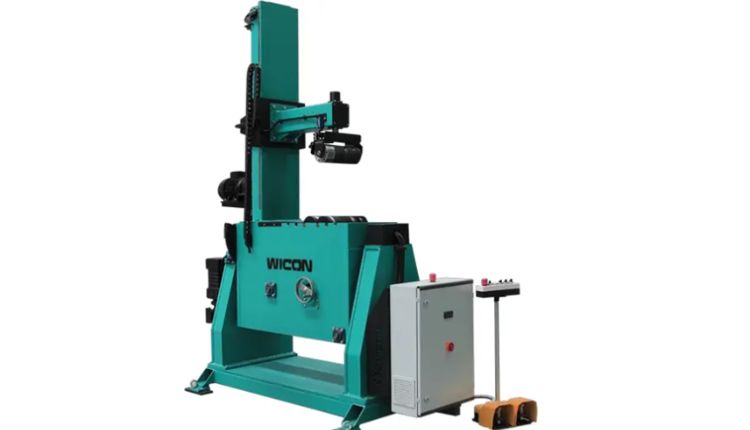Welding pipes is a cornerstone of modern industrial fabrication — from pressure vessels and pipelines to structural columns and offshore platforms. However, the challenge lies not just in joining metals, but in doing so uniformly, efficiently, and safely. This is where Pipe Rotators for Welding step in as game-changing tools that support and rotate cylindrical workpieces, allowing welders to focus on consistency and quality. Wicon, known for its high-performance welding automation systems, offers a cutting-edge range of pipe rotators built for both manual and automated applications.
Why Pipe Rotators Are Essential in Industrial Welding
Traditional welding of long or heavy pipes requires frequent repositioning, crane support, and multiple operators — all of which increase production time and risk of error. A pipe rotator simplifies this process by automatically rotating the workpiece at a controlled speed, allowing the welder or robotic arm to perform the weld continuously along the seam.
The result? Perfectly circular welds, less operator fatigue, and significantly improved productivity. Whether it’s longitudinal pipelines or pressure-sensitive vessels, pipe rotators help standardize the weld quality across all sections of the joint.
Wicon’s Approach to Pipe Rotator Design
Wicon pipe rotators are engineered with industrial-grade materials, advanced motor technology, and automation-friendly interfaces.
robotic welding cells.
Versatility Across Applications and Industries
From small-diameter stainless steel tubes to massive pressure tanks, Wicon’s pipe rotators accommodate a broad range of applications.
…all rely heavily on rotational welding of cylindrical components. Pipe rotators streamline these processes, especially for circumferential welding, overlay welding, and submerged arc welding (SAW) operations.
Wicon models are available in both conventional and self-aligning configurations, providing flexibility depending on whether uniform or variable pipe diameters are being processed.
Integration with Automation and Robotic Welding
The true strength of modern pipe rotators lies in their compatibility with automated welding systems. Wicon designs its rotators with PLC integration capabilities, allowing real-time communication with welding robots, column-and-boom manipulators, or CNC welding controls. This integration enhances precision and reduces human error, especially in long, repetitive production runs.
Advanced versions can also be equipped with torque sensors, speed feedback loops, and load monitoring, giving operators complete control over the welding parameters and pipe movement dynamics.
Safety, Durability, and Operator-Friendly Features
In addition to improving productivity, Wicon pipe rotators contribute to a safer and more ergonomic workspace. With fewer crane movements and manual interventions, the risk of workplace injuries is minimized. Anti-slip rollers, emergency stop systems, and load stabilization mechanisms are standard safety features across all Wicon rotators.
Built for longevity, these systems require minimal maintenance and can withstand the harshest industrial environments thanks to IP-rated enclosures and corrosion-resistant components.

